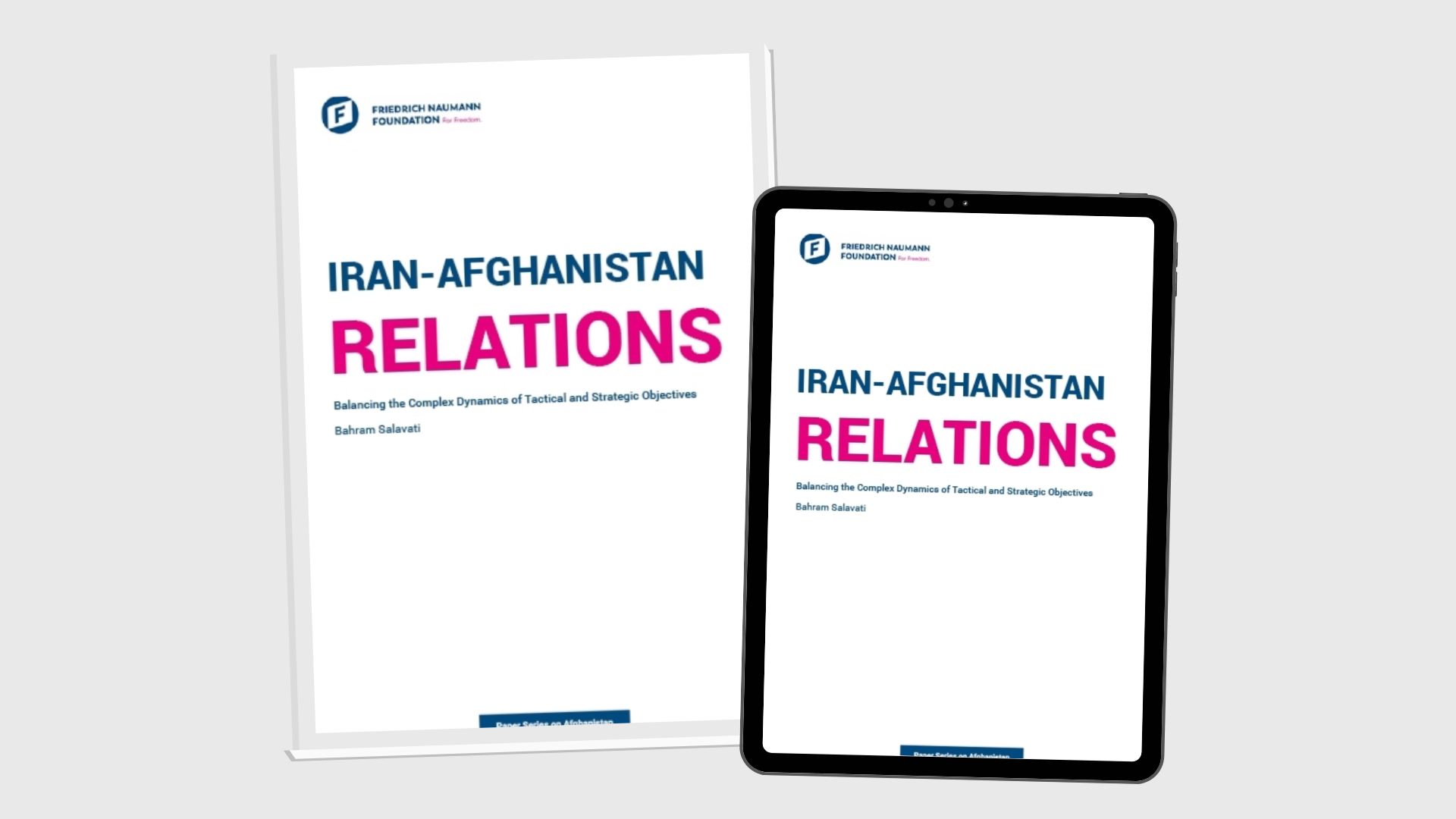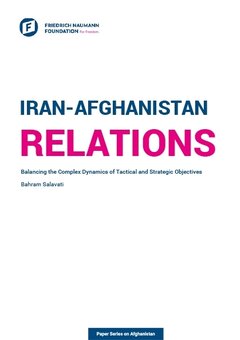Afghanistan
Iran-Afghanistan relations - the geostrategic importance of Afghanistan

The security situation in and around Afghanistan has entered a new phase since the Taliban took power in August 2021. Although armed activities and terrorist attacks have significantly decreased, the region remains tense and highly volatile. The complexity of the situation arises not only from internal conflicts among various interest groups within Afghanistan but also from the intertwining of these conflicts with the diverse interests of regional and international actors.
The ongoing war between Israel and the terrorist organization Hamas, since October 2023, is further contributing to instability in the Middle East. It is evident that the interests of Iran and other neighbouring states such as Russia, China and the USA play a major role. Therefore, the Friedrich Naumann Foundation for Freedom has initiated a stakeholder mapping process. Experts from Afghanistan's neighbouring countries outline the interests and strategies of their respective nations. These perspectives aim to provide a better understanding of the diverse interests in the region, facilitating improved positioning for European and German decision-makers. In the Neighbourhood Perspectives – Afghanistan series, selected experts analyse these strategic interests. The positions published here do not necessarily reflect the opinion of the foundation.
Dr Bahram Salavati wrote the first article of this series, analysing and describing Iran's strategic interests.
Iran's foreign policy towards Afghanistan
As an important eastern neighbour, Afghanistan is an integral part of Iran's strategic "Look East" policy. This policy aims to strengthen economic and energy ties with major East Asian nations such as India and China in order to promote regional stability in Central and South Asia. However, Afghanistan's numerous challenges, marked by ineffective nation building, a lack of inclusive governance, and persistent instability, have led to a spill-over of conflict and insecurity that significantly impacts Iran and the broader region.
Iran's foreign policy towards Afghanistan has undergone significant changes in recent decades, marked by shifting tactical and strategic objectives. Iran has adapted its policy to regional actors such as Pakistan and Saudi Arabia, as well as to extra-regional influences such as the US. The myriad of problems in Afghanistan, including ethnic and political unrest, Iran's opposition to the presence of foreign forces, hydro political disputes, refugee flows, illegal migration, drug trafficking and arms smuggling, pose complex challenges to Iran's national security.
Iran's main objectives are twofold: firstly, seeking an inclusive government in Afghanistan that represents the diversity of ethnic and minority groups, especially those associated with Iran, to ensure stability within Afghanistan and along its borders. Secondly, Iran aims to deepen its strategic influence in Afghanistan to achieve long-term regional goals and to contain external influences such as those of the United States and ideological opponents such as the militant extremist group ISIS (Islamic State in Iraq and Syria).
Implications for Iran's geopolitical goals
From Iran's perspective, Europe should engage in diplomatic negotiations with Iran that focus on security and the formation of a strong, inclusive government in Afghanistan. In addition, European countries, especially Germany, can play a crucial role in promoting regional cooperation, particularly in the security and economic sectors. Such cooperative efforts can significantly contribute to regional security, the development of strategic partnerships, economic prosperity and sustainable development. They could also serve as a significant deterrent to further refugee flows, drug trafficking and the spread of terrorism towards Europe.*
From a geopolitical standpoint, Iran aims to strengthen its long-term strategic relations with China and Russia. The uncertainties surrounding the Taliban's governance make it difficult for Iran to fully capitalize on its recent geopolitical gains in Afghanistan. Iran faces serious challenges with the Taliban's second regime, which is characterized by an ethnic-centric and exclusive approach to power.
Iran has opted for a pragmatic approach towards the Taliban, recognizing them as an ideological threat but acknowledging the need for coexistence. Therefore, Iran has adopted a tactically flexible approach, seeking maximum concessions in its interactions with the Taliban. In return, the Taliban use issues such as border tensions and water politics to extract concessions from Iran. These reciprocal strategies could exacerbate instability in the region and potentially affect Europe.
For insights the background, current challenges and historical rooted issues, as well as Iran’s interests in Afghanistan and the region, please refer to our analysis.
Further analyses of strategic interests in the region will follow.
*Note: From a European standpoint, this perspective faces challenges due to the severe human rights violations, support for terrorist organizations, and Iran's role in regional conflicts, particularly in the current Hamas-Israel war.


